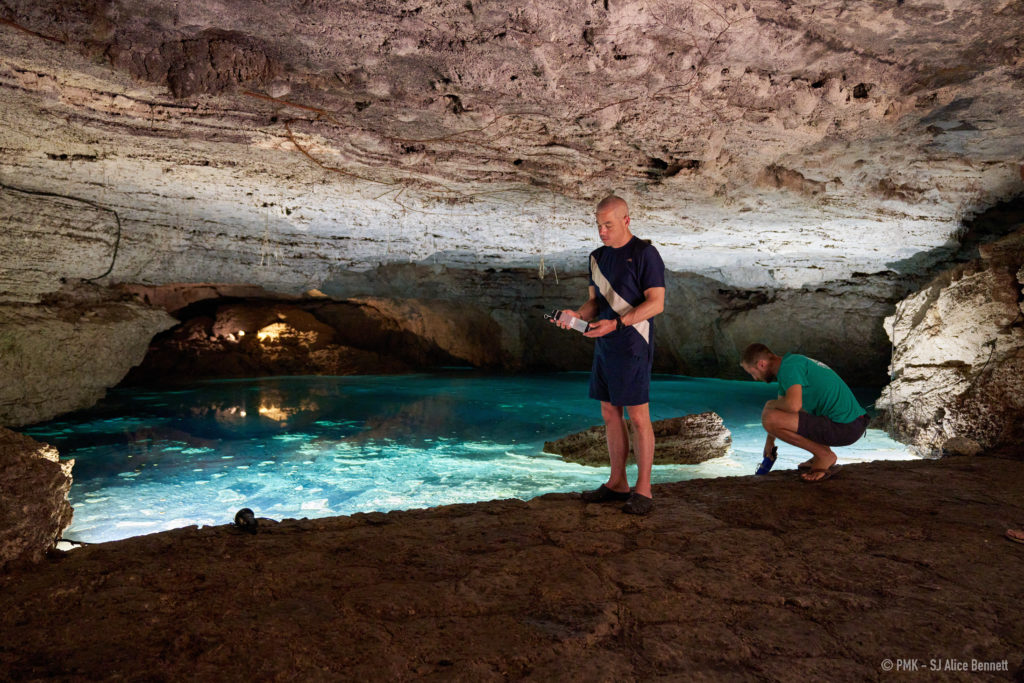One of the most critical resources in the Yucatán Peninsula is the freshwater aquifer, which sustains life for people, animals, and the second-longest barrier reef in the world, located just off the coast.







Photos by SJ Alice Bennett.
And believe it or not, there hasn’t been a source for longitudinal data to track water quality as it moves through these underground rivers. That means that it is difficult to say how population growth and development, human activity, and climate change are impacting the aquifer, or to identify solutions to minimize their impact.
Our new project called the Mexican Aquifer Research project, or MARP will do just that. This is a unique collaboration between technical divers and scientists to systematically collect water samples from caves that span the north to south end of the region, and from the upstream to the downstream side of the caves. Data across this geographic span, collected reliably throughout the years, will form a complete picture of the water chemistry as it exists today and as it changes over time.
MARP will make findings publicly available to scientists, cave and property owners, land planners, government officials, and everyone else that has an interest in preserving this precious resource for generations to come.
This past week project leaders/divers Ivo Chiarino, Jon Kieren, SJ Alice Bennett, and University of Texas – Austin Geoscientist Bayani Cardenas and I gathered to work out collection methodologies, do sample collection dives, and even had a chance to conduct some simple field chemistry.






Beyond caves in Tulum, one of our first collection sites was at Mayakoba in the Burrodromo and Ma’Áayin caves. Rosewood Hotels & Resorts and RLH Properties have supported our project extensively and have been champions of conservation.
We’re excited to announce more about our results later this summer, but concluded this first leg of the project with optimism and hope about the health of the aquifer in many places, and the ability for people to respond to the challenges this area faces. Congratulations to Ivo Chiarino who first inspired the MARP project, and who’s passion and inspiration have rallied support to conduct a project which will require many people. There is more work to do, but this was an exciting and important beginning.
Thank you to all our supporters of the Cenotes of Mayakoba project—your donations and book purchases have helped offset the considerable costs for the MARP project. At some level, protecting this area is a matter of voting with our wallets. Your insistence on sustainable tourism provides the incentives to encourage responsible development of the region.
If you haven’t had a chance yet, please consider buying a book or donating to support the continued work of this project. Cenotes of Mayakoba is a tax-deductible non-profit project, with 100% of all book sales and other proceeds going to this important cause.